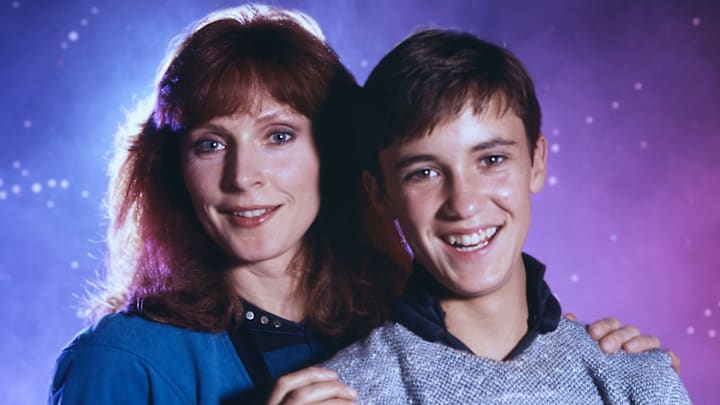To answer this article’s question quickly: Yes and no.
To answer the question with a bit more nuance: Wesley starts off pretty bad, but he gets better.
To understand what I mean, read on:
It is not especially unique for a Star Trek fan to express some disdain for Wesley Crusher. Nor is it uncommon for other fans to loudly defend him on the basis of finding him infinitely relatable. In reality, Wesley is a character who got refined and improved upon over the course of Star Trek: The Next Generation, but who also never overcame his first impressions.
As is the case, I think, for many people, I got into Star Trek when I was a kid. While I had seen some episodes before, I truly fell in love at 12, when I found my parents’ old VHS recordings of both reruns of the original Star Trek and first-airings of Star Trek: The Next Generation. Retro commercials from the 1980s aside, the shows themselves were amazing.
Well, the shows were amazing except for one character that really irked me on TNG: Wesley Crusher. Wesley was snotty and whiney, and yet he got to do all sorts of cool, amazing things and be constantly praised by every adult on the Enterprise for how perfect and brilliant and promising he was.
As a 12-year-old, watching TNG 20 years after it aired, Wesley felt like a teacher’s pet. It was as though he could get away with murder just because his mom was friends with the captain. Meanwhile, any other kid would be depicted as a numbskull who was only there to worship Wesley, the Glorious Nepo-Baby. That may seem harsh, but that was my impression of Wesley as a tween.
The irony, of course, is that Wesley was arguably introduced to make Star Trek: The Next Generation appealing to middle-grade children, yet his life was so divorced from actual kids’ experiences that it felt out-of-touch. Meanwhile, adults watching were just annoyed that some smarmy kid was schooling all of the adults.
Okay, so Wesley started out bad, but I said that he got better…How is that?
You see, after the first season-and-a-half, let’s say, Wesley’s character mellows a bit. Yes, he is still a teenager flying the Federation flagship, but it is made clearer that he is not the answer to every problem. He is also given the opportunity to be inept and learning, like in Season 2’s “Pen Pals” and Season 3’s “Evolution.”
Granted, Wesley is still praised for his “brilliance” and “specialness,” but a balance is found. He is shown to be just competent enough to play into young viewers’ fantasies of doing more than kids can usually do, without being so preternaturally perfect as to annoy viewers, both young and old.
Honestly, by Season 3, Wesley is a pretty decent character. He is not the best character ever, but he makes a valid contribution as a member of the Enterprise-D crew, just as Star Trek: The Next Generation was settling into its own identity as a series. Unfortunately, Wesley did not have much chance to settle himself, as he was written out of the show only a few episodes into Season 4.
If Wesley had stayed on the show, perhaps he would have managed to grow on more fans. As an adult now, I definitely see how Wesley improved by Season 3, but I still find him singularly annoying in Season 1. The fact is, though, that he did not stay long enough to know that.
The reasons for Wesley’s fraught presentation are likely varied. Some of it may be that Wesley was an idealized self-insert character for series creator, Gene Roddenberry. Some of it may be that the writers didn’t initially know how to write about a teenager living in the future. I don’t think it was Wil Wheaton’s fault. He was working with what he was given.
Whatever the reason, Wesley’s improvement over time shows that he is not wholly terrible. Plus, the lessons learned with Wesley may have helped make Jake Sisko the excellent character he is in Star Trek: Deep Space Nine. But, that’s a topic for another day.
